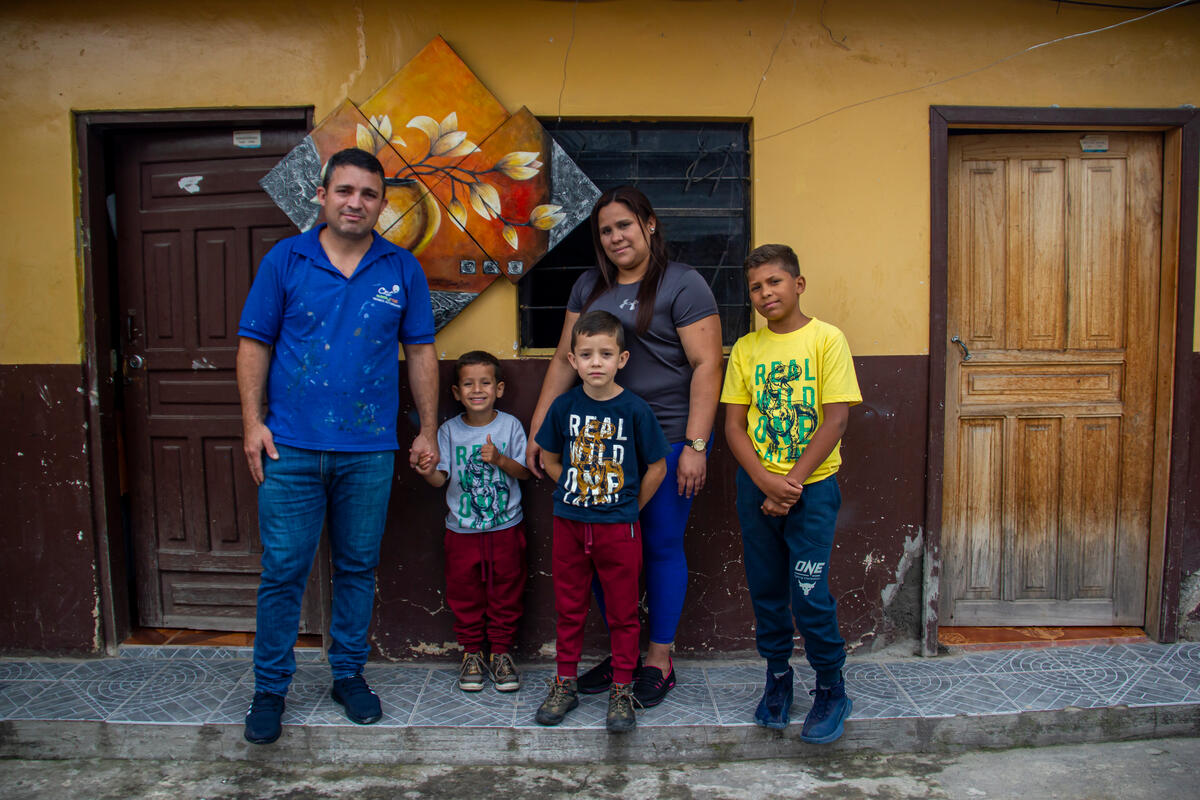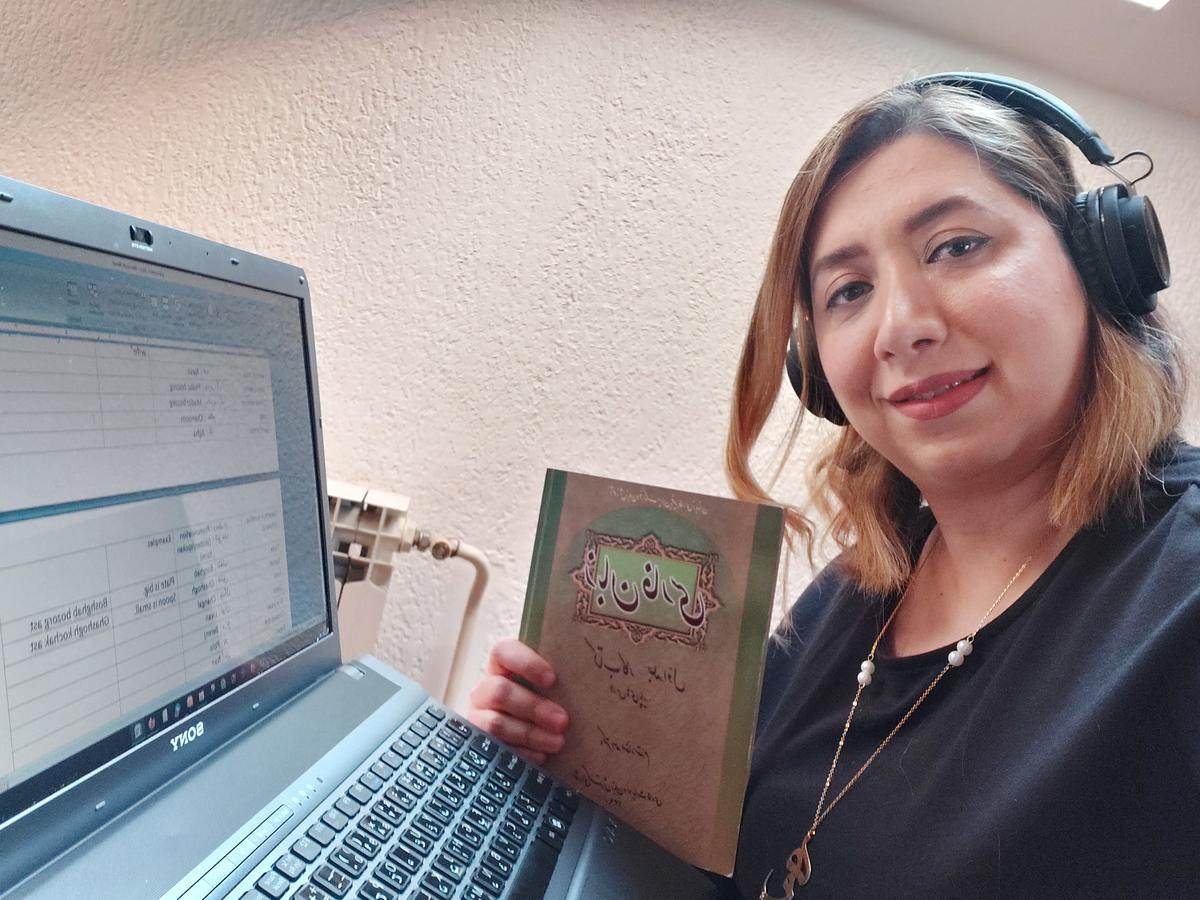Revolving fund paves way towards self-reliance for Afghan refugees
Revolving fund paves way towards self-reliance for Afghan refugees

ESFAHAN, Islamic Republic of Iran, March 16 (UNHCR) - Ali Jan Jafari says the traditional view in his homeland, Afghanistan, is that women should stay at home and look after the children.
"We believe they cannot go out of the house and work," the 41-year-old refugee tells a UNHCR visitor to his small garment business in Esfahan, central Islamic Republic of Iran, while adding: "I never had female workers before this project."
Ali opened the business with a loan granted through a revolving fund set up by UNHCR and Iran's Bureau for Aliens and Foreign Immigrants' Affairs (BAFIA) in 2013 to help increase employment opportunities and encourage self-sufficiency, particularly for vulnerable female refugees.
When considering his loan application, UNHCR and BAFIA referred a number of female refugees to Ali to interview and evaluate. "I was immediately impressed with many of the women and their abilities. I discovered a newfound respect for their role in providing support to their families and society," he says.
Ali had been brought up near the western Afghanistan city of Herat believing, like most people, that a woman's place was in the home. His life was disrupted when conflict came to the country in the 1980s. Ali's widowed father, fearing for the safety of the boy and his six siblings, decided to flee their village and cross into Iran. He was just eight at the time.
Ali resumed his elementary school studies in Esfahan and began working after school in a fabric factory. When he was 17 he began learning tailoring, and later started a small workshop in his family's home with his two brothers and four other men.
Over time Ali built up a good reputation for himself in the garment industry in Esfahan and was interested in investing in newer equipment and expanding his business. However, as a foreigner he faced limitations in acquiring a loan.
Ali heard about the revolving fund through BAFIA, the refugee agency's main government counterpart, and submitted his application for the equivalent of about US$35,000. He was granted a loan after an Iranian friend in the garment trade signed the guarantee on Ali's behalf. Within three months of getting the money, he had rented premises, bought new sewing machines and hired almost 50 people, about half of them woman.
One was fellow Afghan refugee Roghaye Dowlati, who was born and raised in Esfahan after her parents fled the conflict in Afghanistan in 1981. Now, at 23 and the oldest of four children, she feels responsible for helping her elderly parents to provide for the family.
Roghaye had participated in tailoring courses run by UNHCR's partner, the Technical Vocational Training Organization, and applied for the job in Ali's workshop after receiving a notice from UNHCR and BAFIA. She has since become a professional tailor and particularly adept at challenging techniques.
Ali and his wife have four children, including two girls. He says the most important thing for the couple is giving their children, boys and girls equally, an excellent education so that they have a good start in life.
"I think there are two ways to help people. One is to give them cash assistance. This will solve their problem for a while. The second way is to show them a way to develop themselves so they may solve their own problems," says Ali. "I selected the second way and have given employment to people in need. This has helped them to generate income and empower themselves," he adds.
Meanwhile, UNHCR and BAFIA are working to expand the revolving fund to benefit refugees countrywide. The fund, with US$230,000 provided over four years by UNHCR, has disbursed loans to six businesses, of which almost 80 per cent has been repaid, and provided much needed employment for 45 people.
By Teddy Leposky in Esfahan, Islamic Republic of Iran









